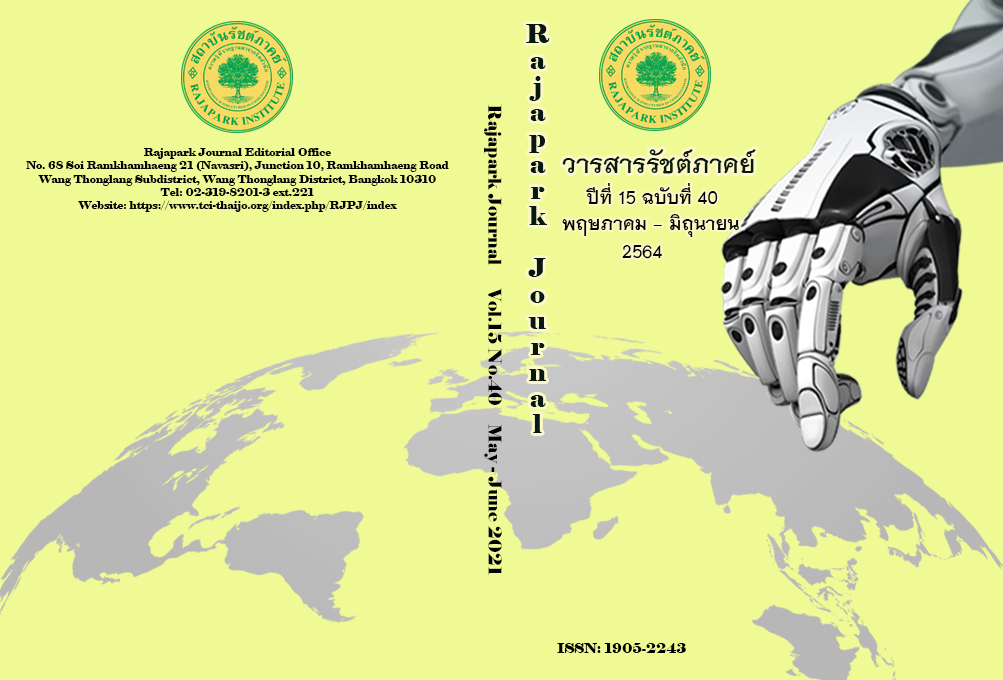Legal Measures for Control the Homestay for Sustainable Tourism
Main Article Content
Abstract
The objective of this research was to investigate legal measures on the management system of sustainable tourism homestay business to identify the problems and obstacles to Thai law enforcement and measures to punish homestay operators. This study was conducted by comparing related international legal measures to control the homestay business to analyze the problems and propose solutions to the homestay operation-induced problems in Thailand. The results could be analyzed to determine the appropriate measures to manage homestay business in Thailand. The methodology is a qualitative research based on documentary works. The results indicated that barriers to controlling homestay business have been still found under Thai law enforcement. The issues included the definition of a homestay in Thailand, the promotion of homestay business, the fragmentation of the relevant laws without uniformity, affecting the development and control of the homestay business for sustainable tourism. For the reasons mentioned above, the author suggested the guidelines and measures control the homestay business. Promoting a good homestay business operation should come together with effective control over the homestay business. Therefore, it is recommended that Thai laws should be imposed or enacted that apply specifically to homestays or accommodation with similar operations. The enactment of said laws should also be separated from the Hotel Act, B.E. 2547 (2004) to ensure clarity and convenience for homestay operators to conserve natural resources and the environment for sustainable tourism.
Article Details
Views and opinions appearing in the Journal it is the responsibility of the author of the article, and does not constitute the view and responsibility of the editorial team.
References
Department of Tourism (2012). Thailand Homestay Standard. Bangkok: Chulalongkorn University Printing House.
Economics Tourism and Sports Division. (2019). Tourist Statistics Foreigners Traveling to Thailand. Retrieved August 21, 2019, from https://www.mots.go.th/more_news_new.php?cid=411
Madlem, F. (2013). legal measures regarding the operation of homestay. Thesis Master of Law. Chulalongkorn University.
Sripratak, P. (2015). Legal Measures for Safety, Sanitation and Environment in Carrying on Non-Hotel Lodging Place Business. Thesis Master of Law. Dhurakij Pundit University.
Office of the National Economic and Social Development Council. (1996). Summary of The Eighth National Economic and Social Development Plan (1997-2001). Retrieved June 16, 2019, from https://www.nesdc.go.th/ewt_dl_link.php?nid=3783
Thai Hotel Association. (2019). Unlock a Small Hotel the Golden Opportunity of a Small Hotel Who Wants a License. Retrieved June 16, 2019, from https://theboutiqueking.com/blogs/news
The Berlin Declaration Biological Diversity and Sustainable Tourism. (1997). International Conference of Environment Ministers on Biodiversity and Tourism, March 6-8, Berlin. Retrieved August 21, 2019, from http://www.univeur.org/cuebc/downloads/PDF%20 carte/06.%20Berlin%20declaration.PDF
Watcharasin, O. (2008). Participation Join the Community Law in the Homestay Business. Thesis Master of Law. Ramkhamhang University.
Wongbenjarat, A. (2018). Director General for Department of Tourism. Interview. (October, 26). By Pivavatnapanich, P.


